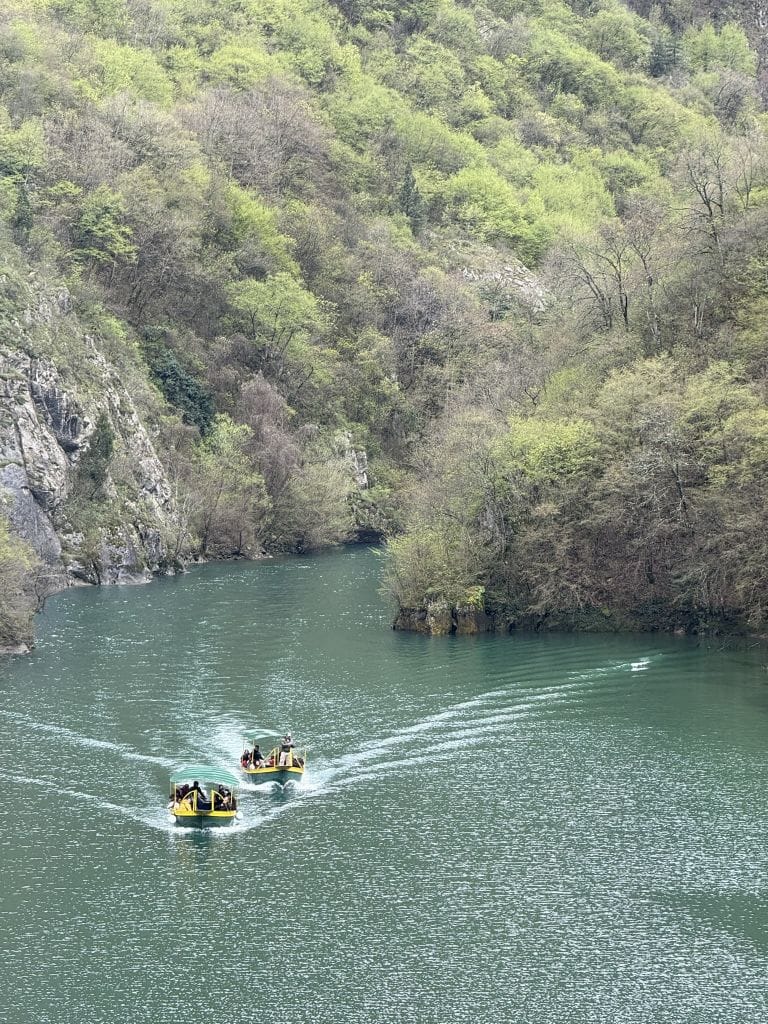
Macedonia: A Land of Stark Contrasts

Trusting the Veto Rule
Before we talk about Macedonia, we need to talk about Kosovo. We opted to skip Kosovo. Two reasons guided our decision: the north of Kosovo, where we intended to enter, was not considered safe at the moment, and in addition we lacked car and motorcycle insurance for the country. But beyond logistics, it came down to a simple but sacred rule we both live by — if one of us feels uneasy about a place, a route, or even a vibe, we leave. No questions, no pressure, just trust. We each carry a virtual "veto card," and when it's played, the only response is "Let's go". No questions asked, no discussions. That's why we drove from Serbia straight into Macedonia.
Crossing into Macedonia was smooth. This time, unlike in some other Balkan countries, car insurance was actually checked. Luckily, we were covered — both the truck and the bike.
Natural Wonders and Hidden Scars
Macedonia struck us immediately as a place of contrast — unexpected juxtapositions that made us pause, reflect, and feel.
Take the Matka Canyon. A trail clings to the cliff side, sometimes only a foot wide, leading deep into a gorge where the river winds below. In three hours, we saw five people. Remote. Peaceful.
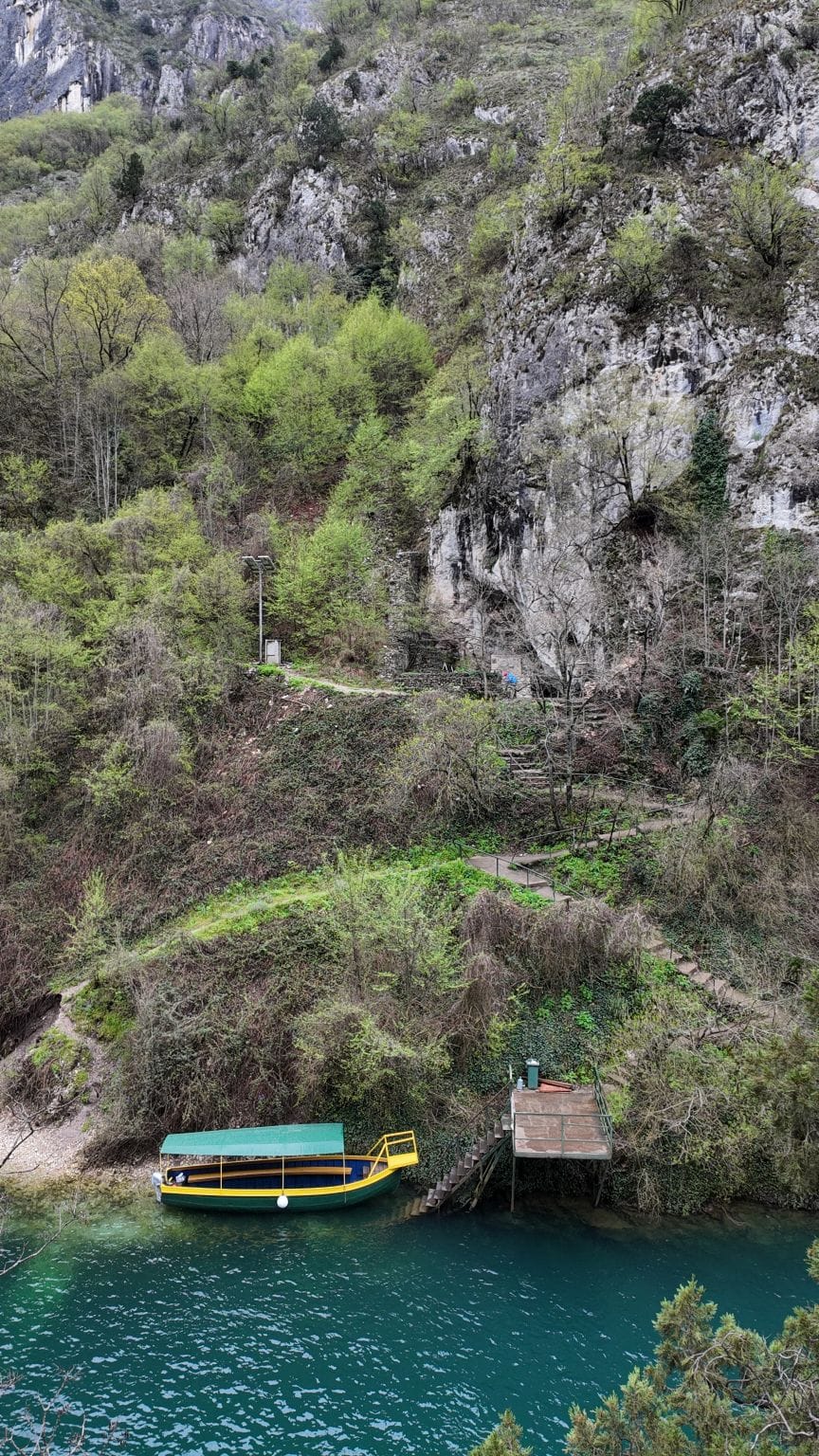
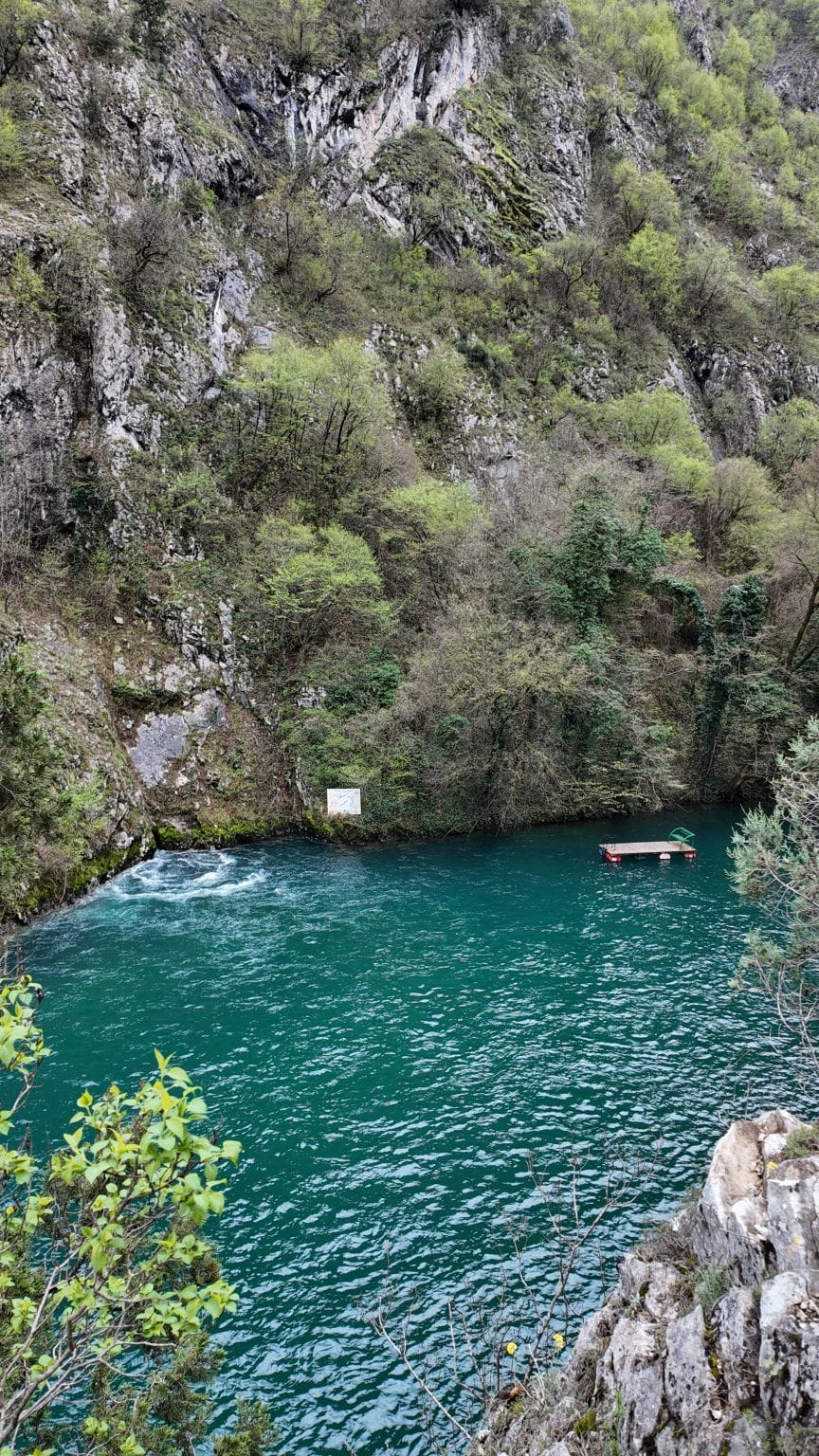
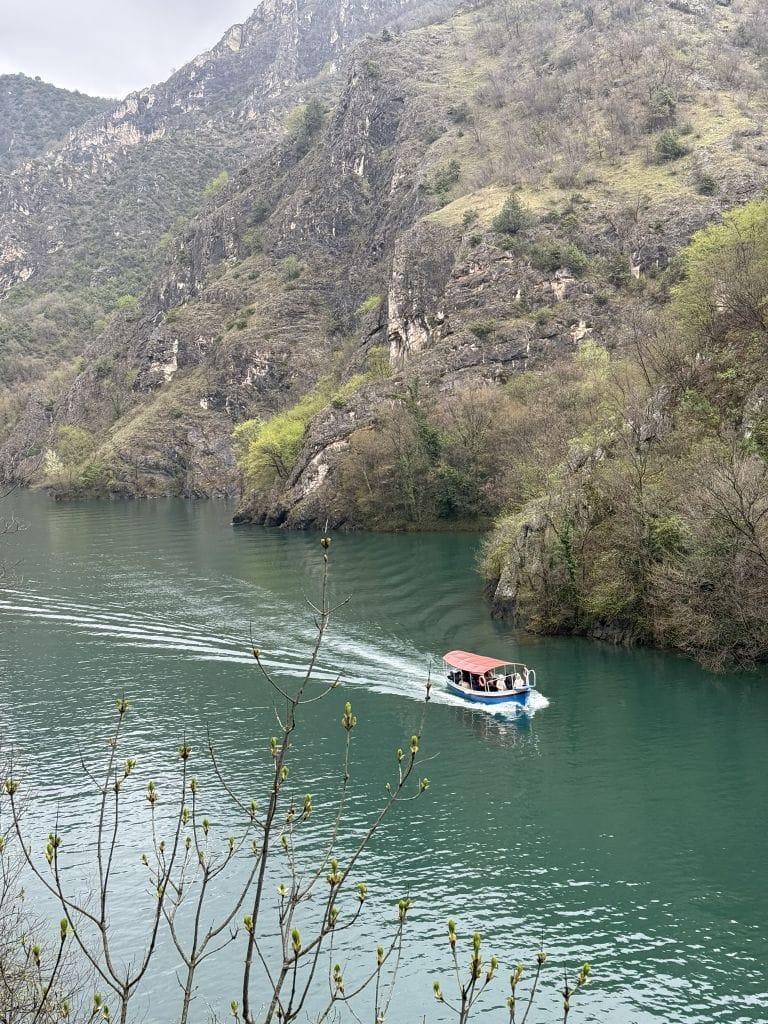
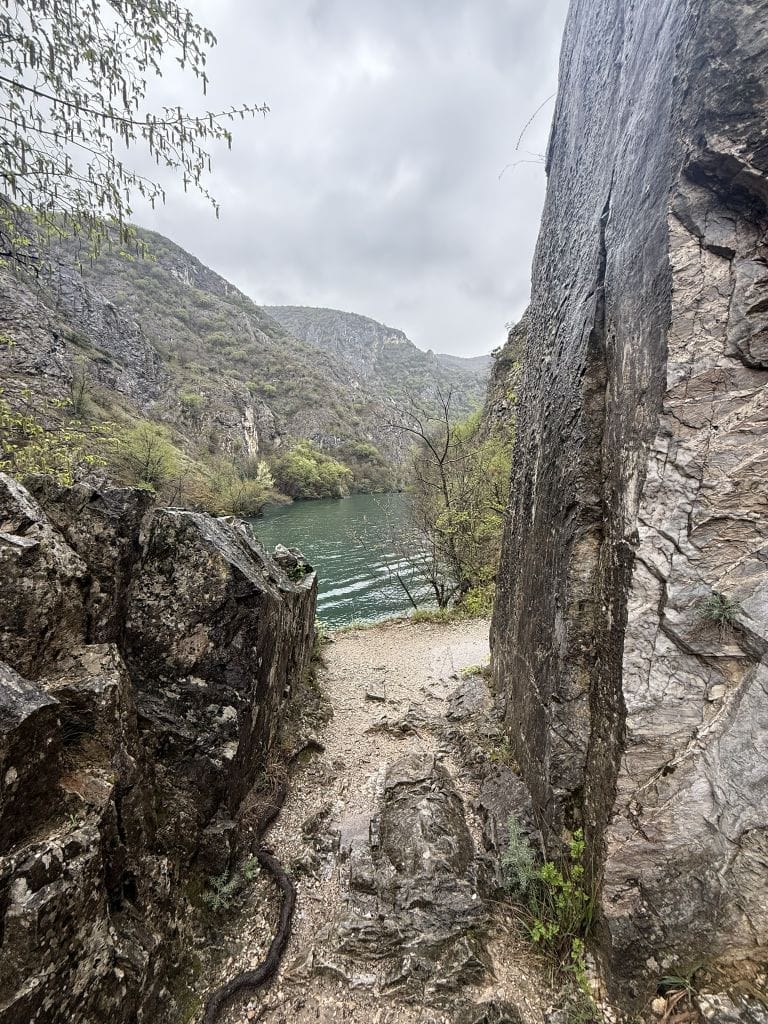
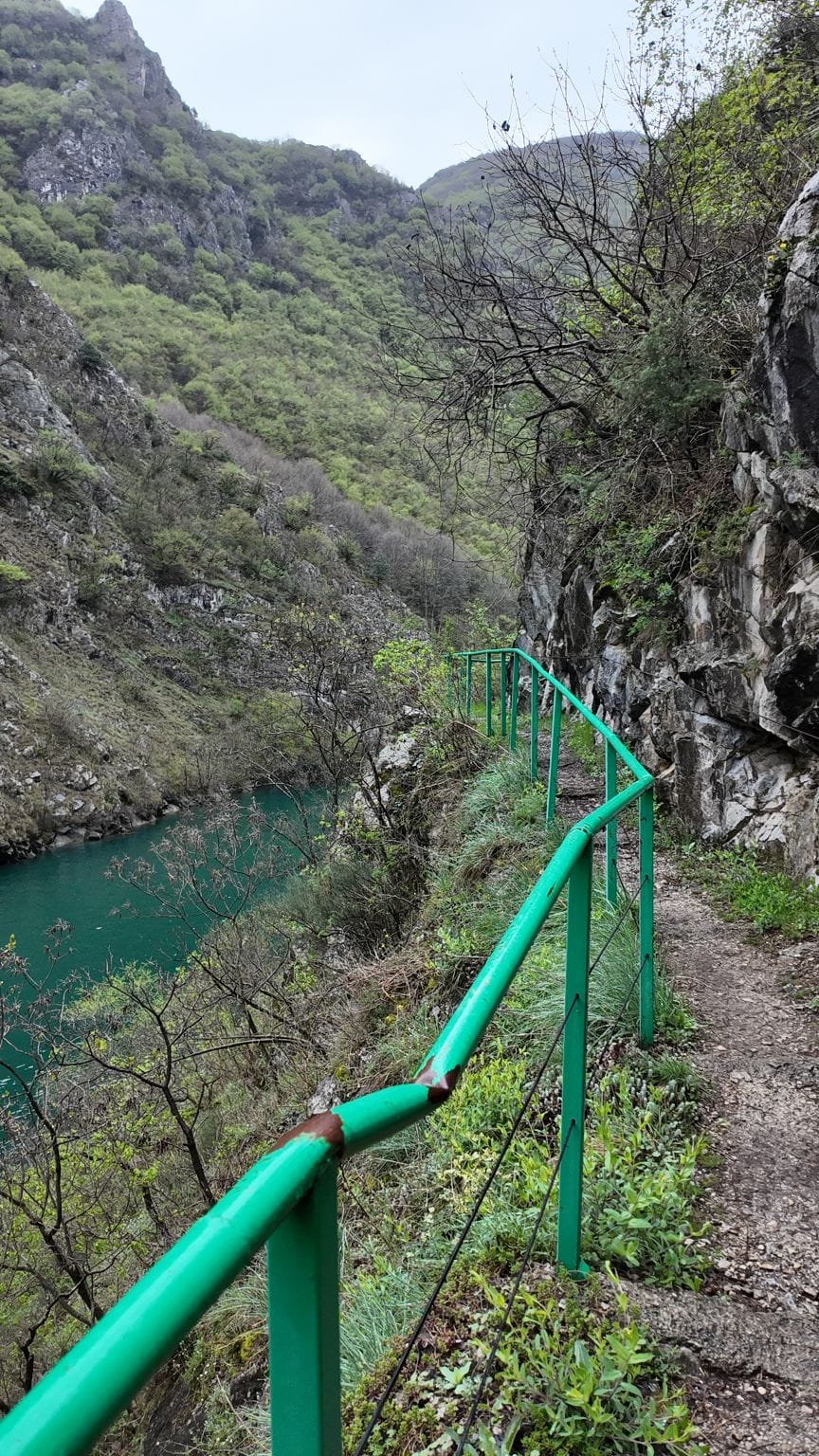
Untouched? — almost. Because halfway in, perched just out of sight from the tourist boat route, is a hidden ship graveyard. Old boats, rusting and broken, dragged behind a hill, littering this nature reserve. And then the huts — fishing cabins perhaps — each with its own trash pile: plastic chairs, mattresses, rotting debris. It made us wonder: why build a slice of paradise only to trash it?
We saw this same paradox again and again. Driving through the mountains, you'd think you’re in a postcard — snow-capped peaks, meadows, waterfalls. Then, at every truck stop or cooling point, there’s wild litter: plastic bags, sofas, half-smashed cars.
Skopje: Where Old Meets Odd
Our next stop was Skopje. We parked behind a sleek, modern sports arena — concert-ready, gleaming. And just beyond it? An abandoned water park. Empty slides, cracked tiles, still water in forgotten pools. A scene from a dystopian movie.
We explored Skopje by bike. North of the river: the old town, a Turkish bazaar, quiet and shuttered on a Sunday. Empty streets. Peaceful. Magical.
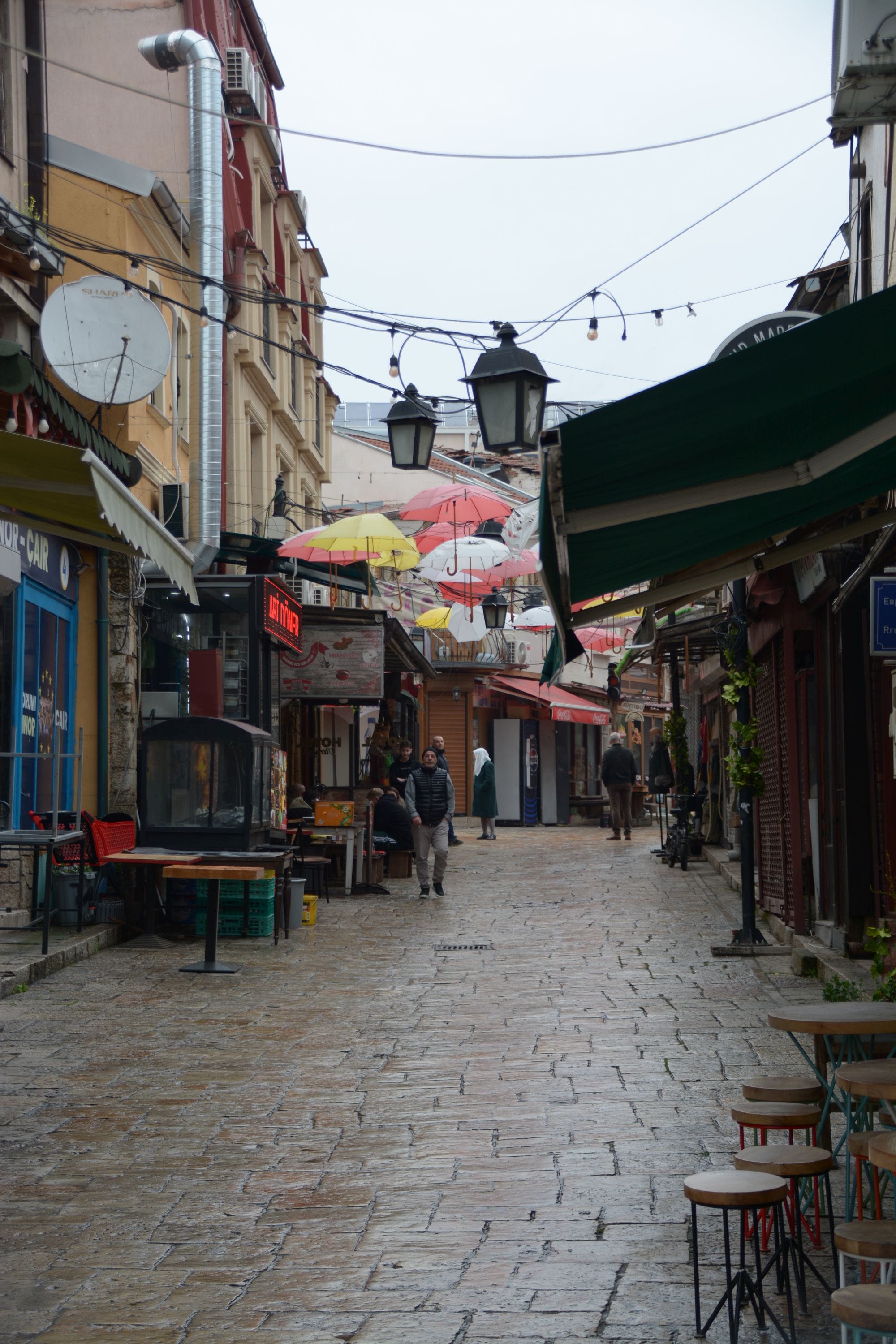
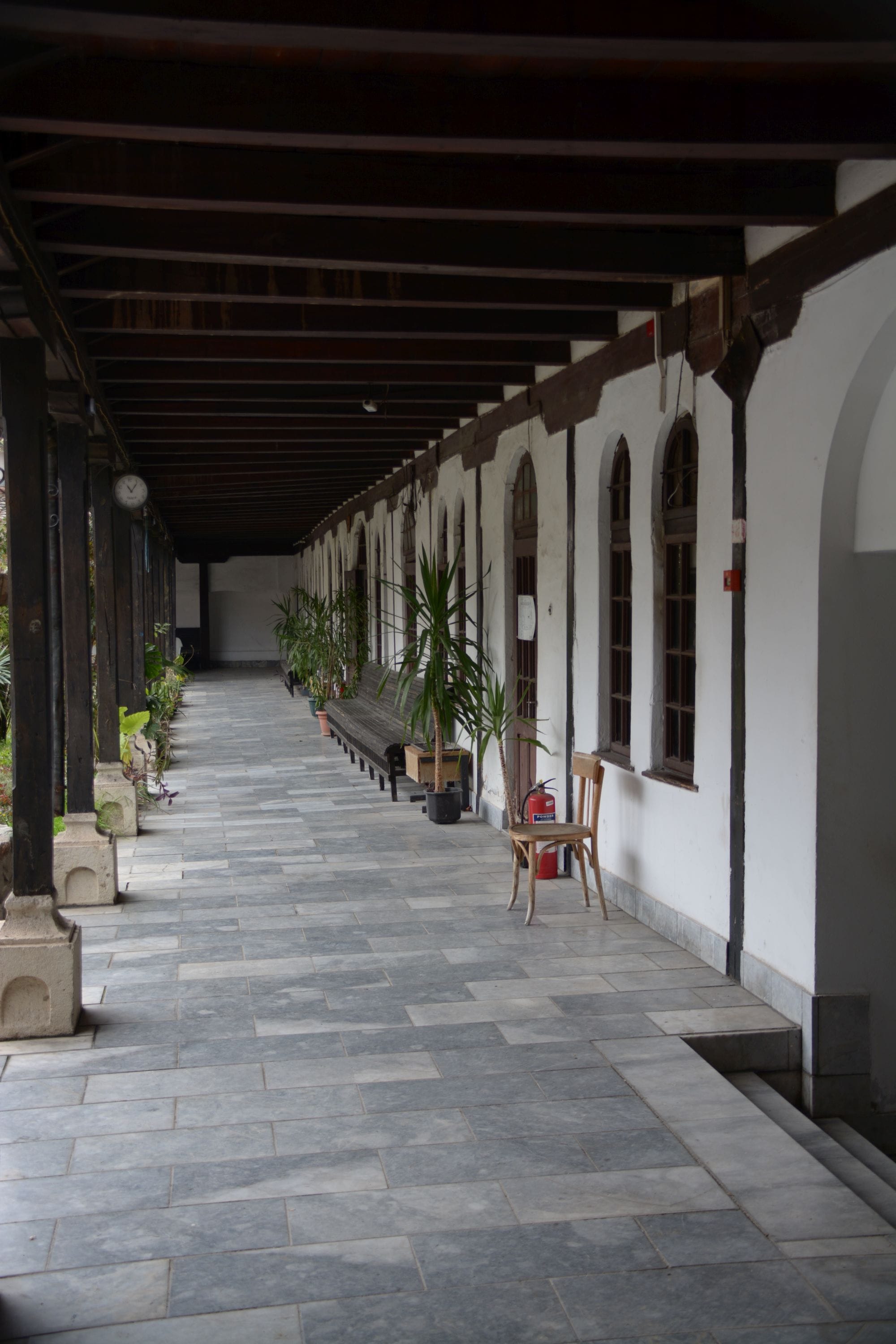
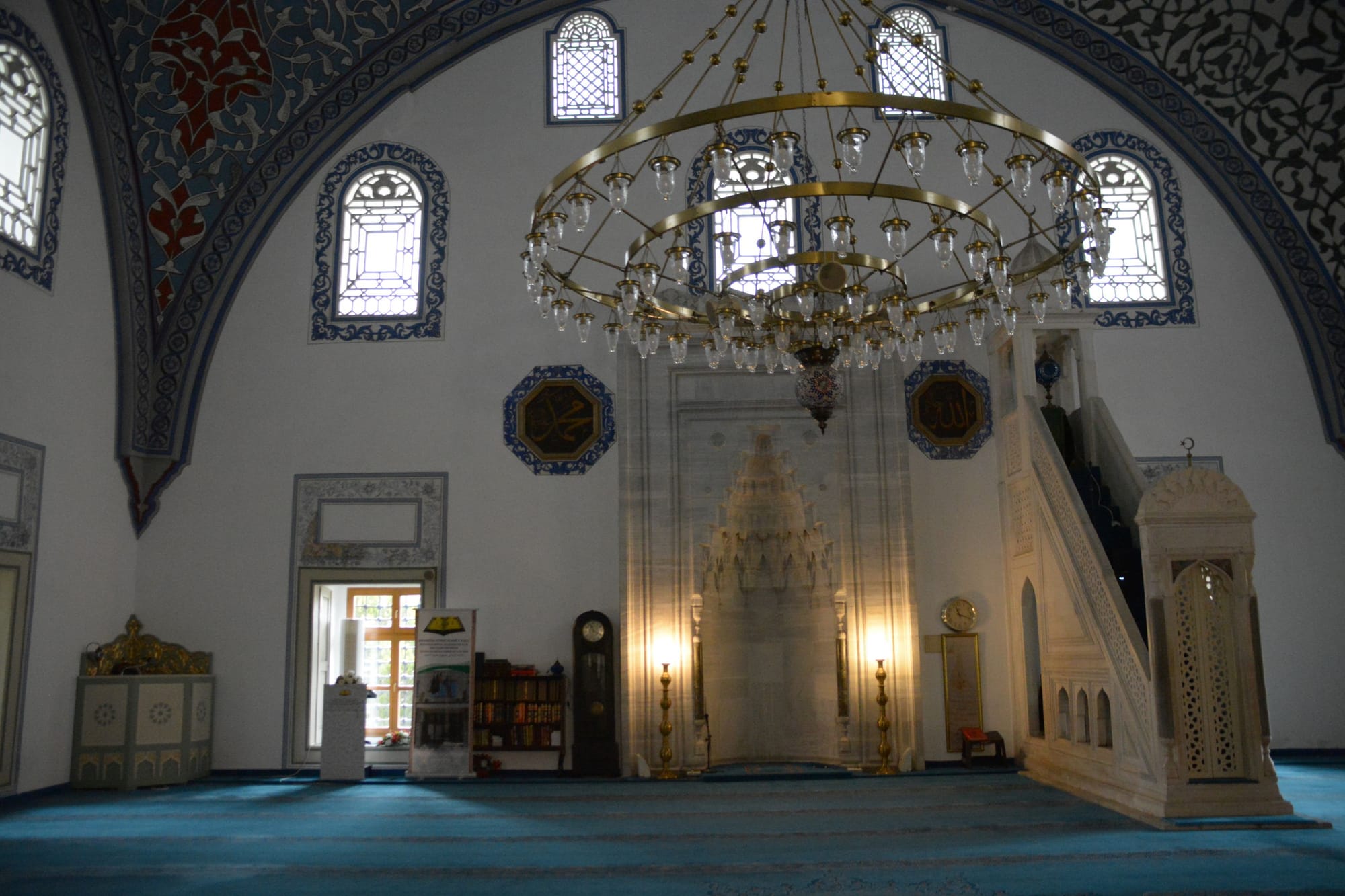
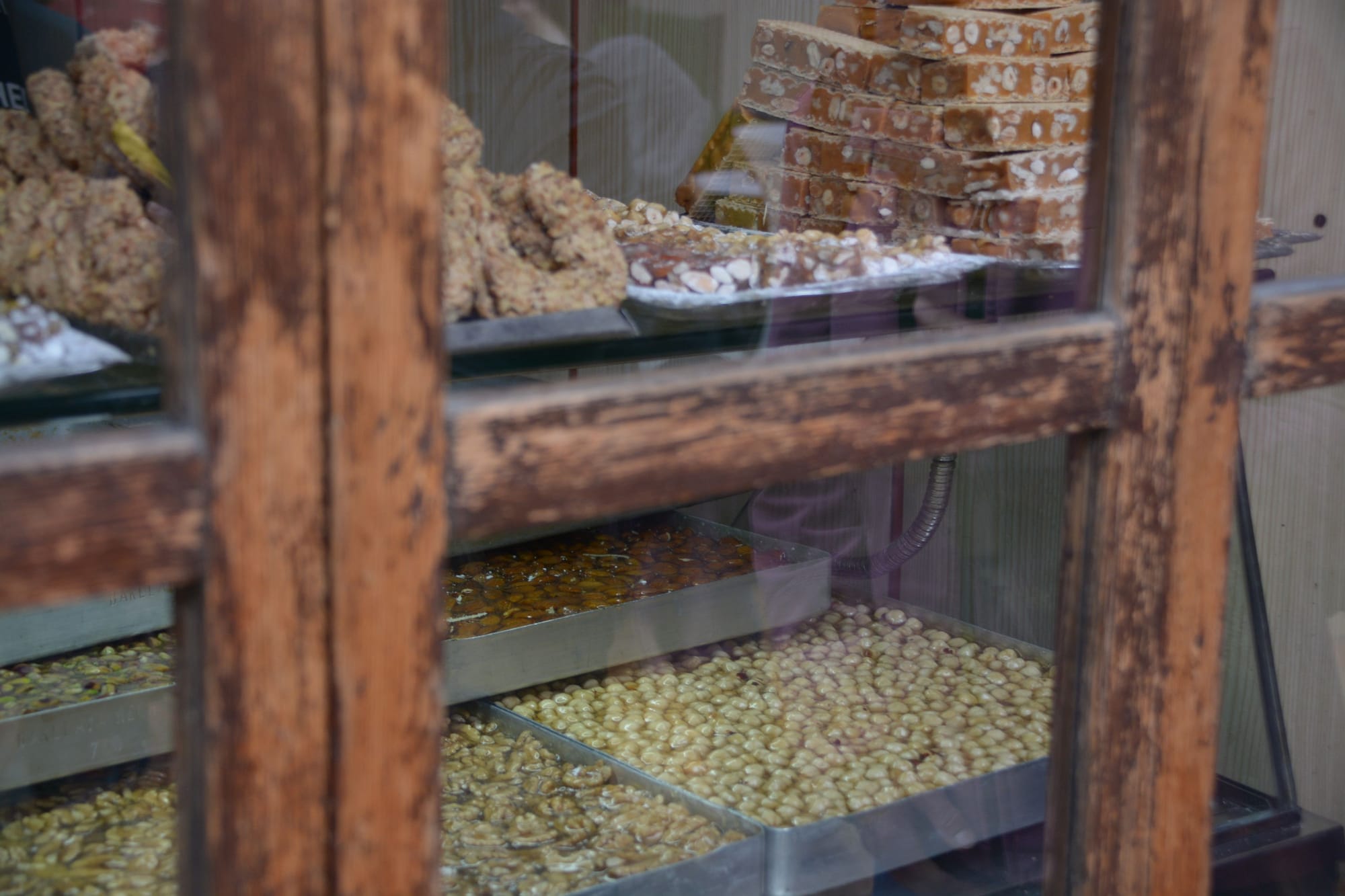
Just across the river: the new town. Neoclassical madness. Massive monuments, towering 30m high horsemen, a mini Arc de Triomphe. Bridges lined with statues. It felt like a mashup of Paris, Vegas, and something an Roman dropped in the Balkans. A surreal clash of identities.
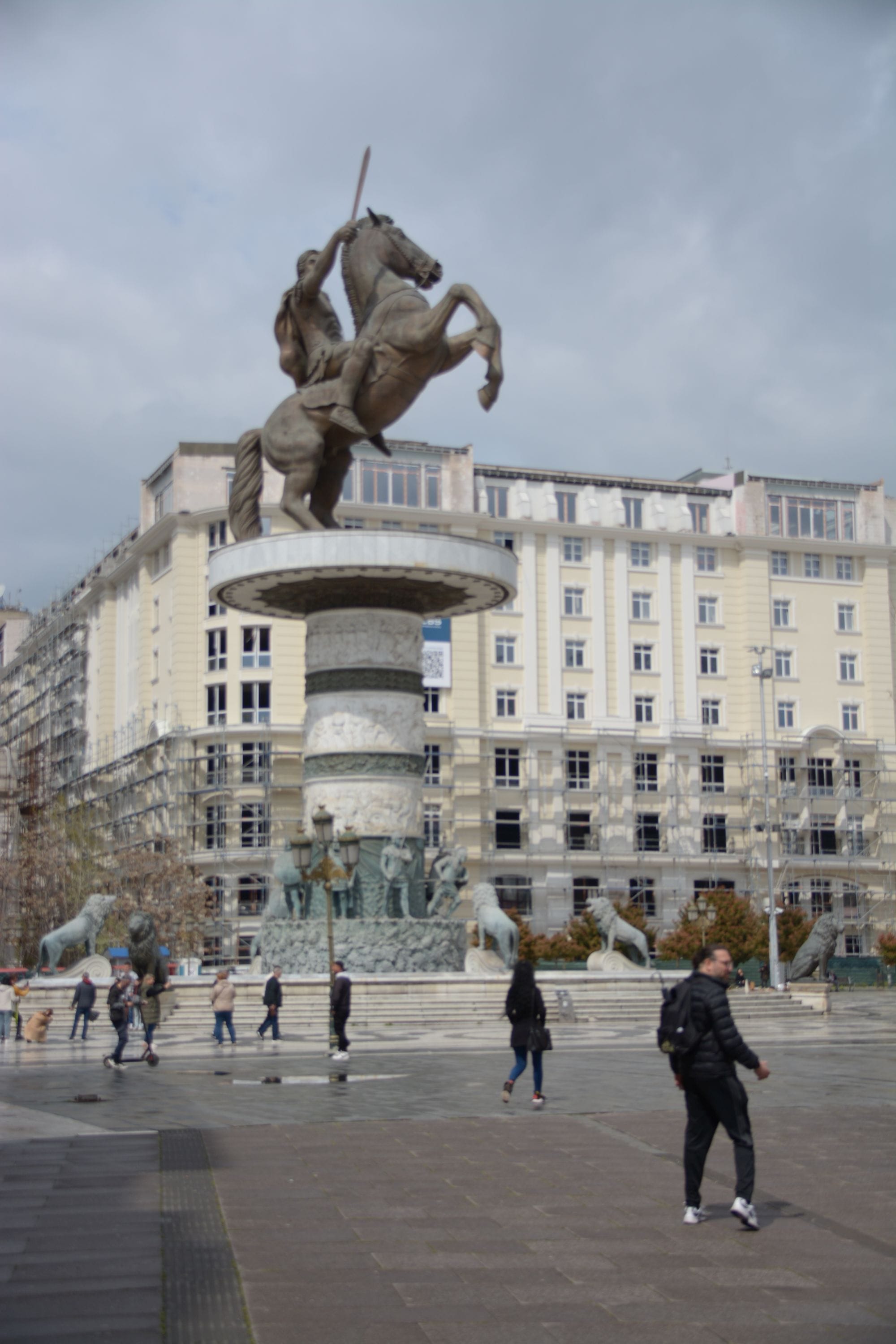
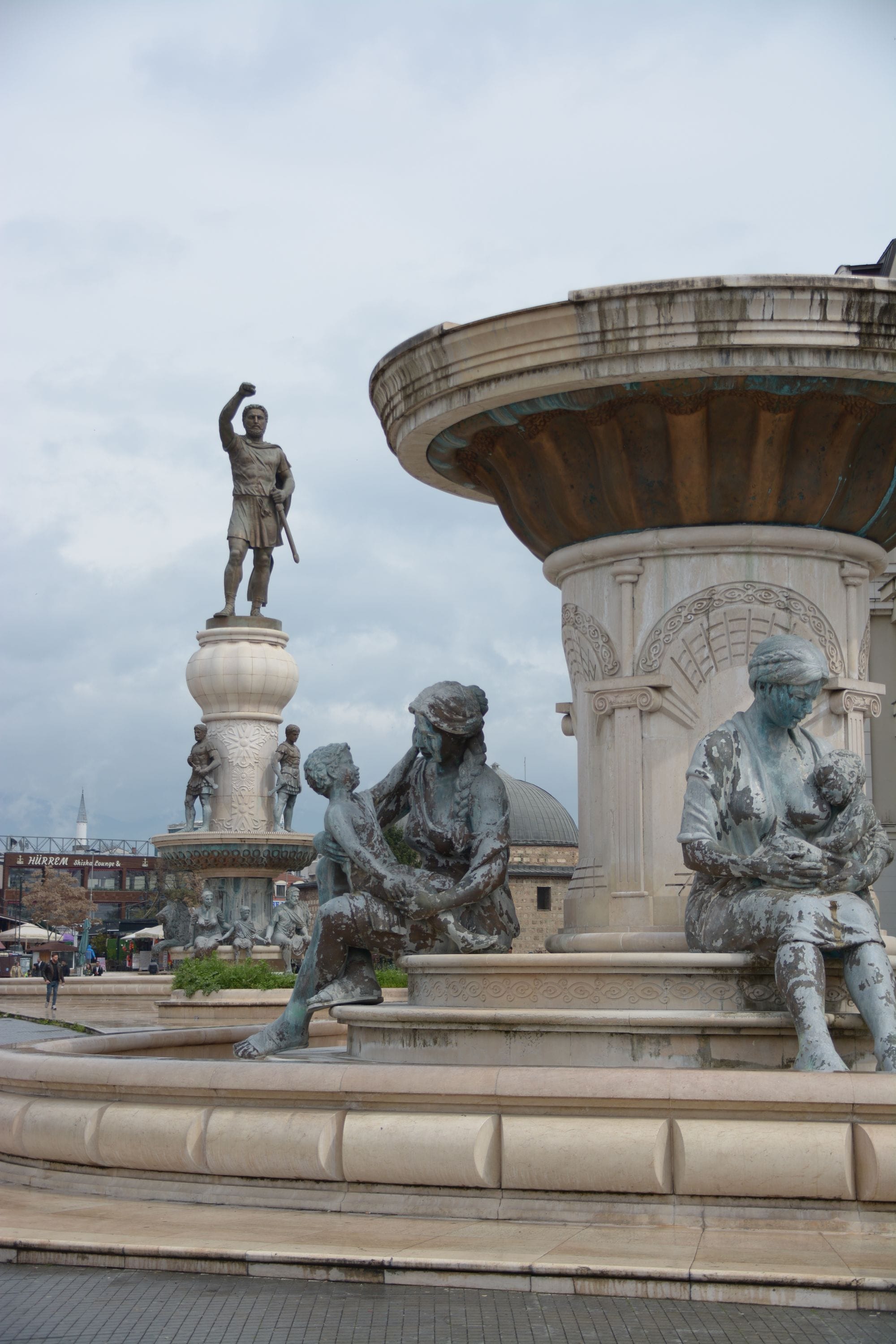
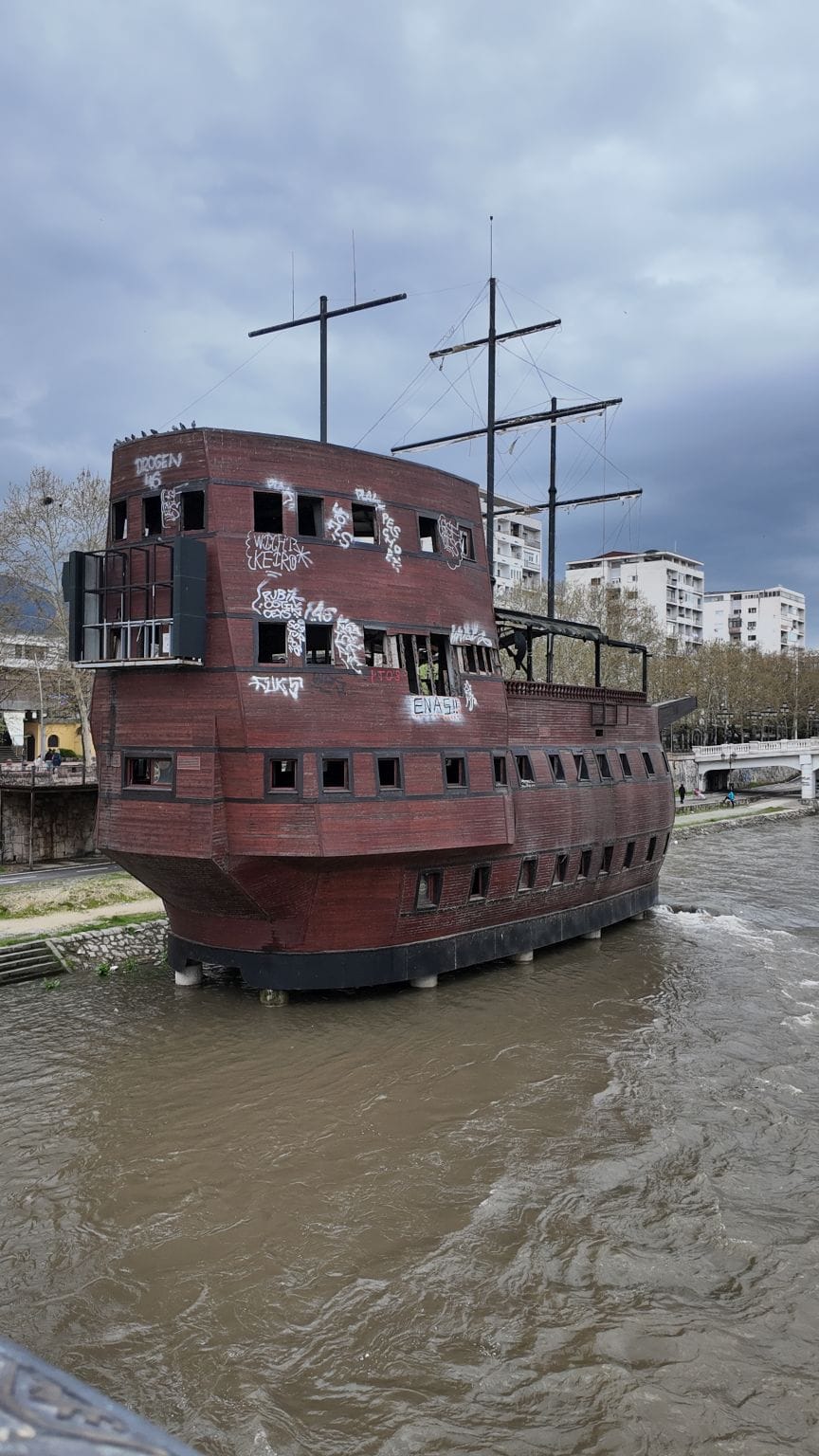
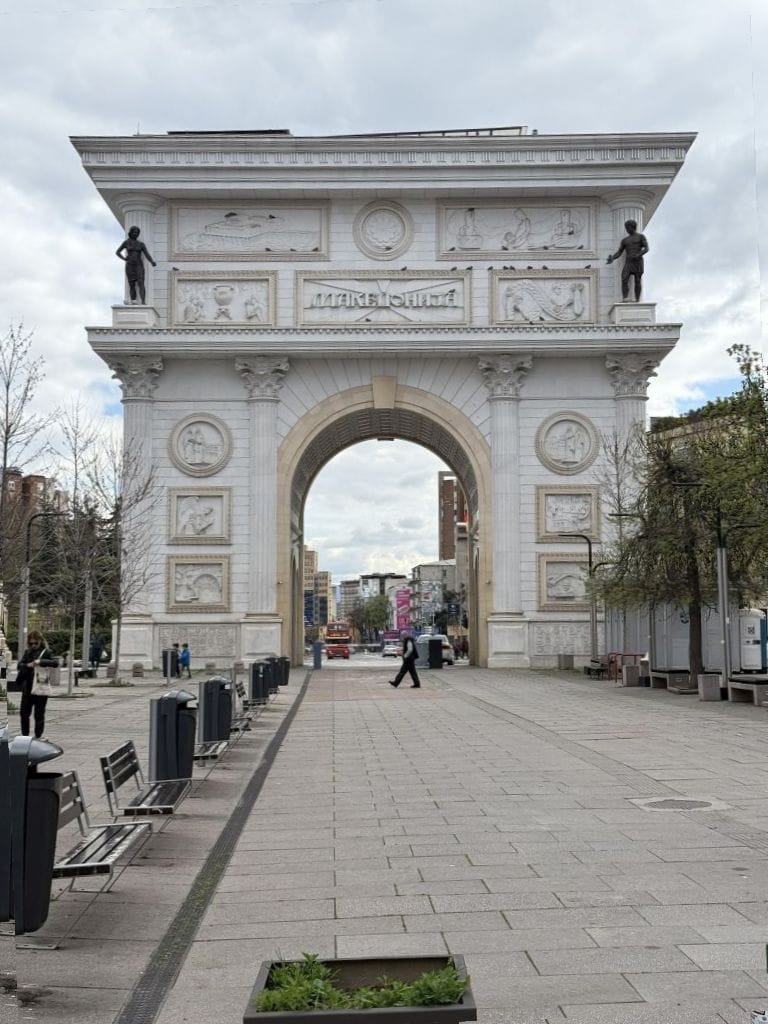
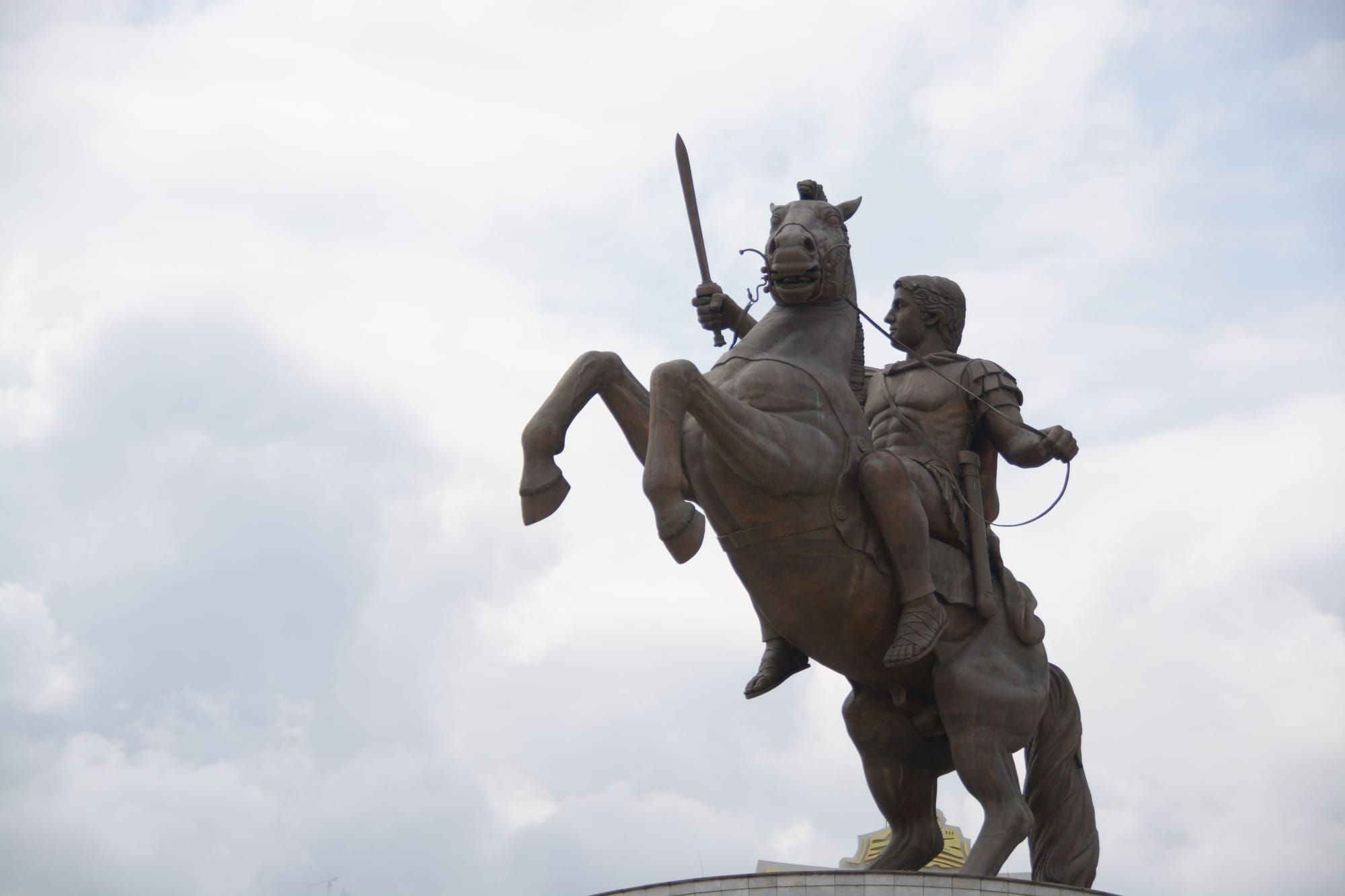
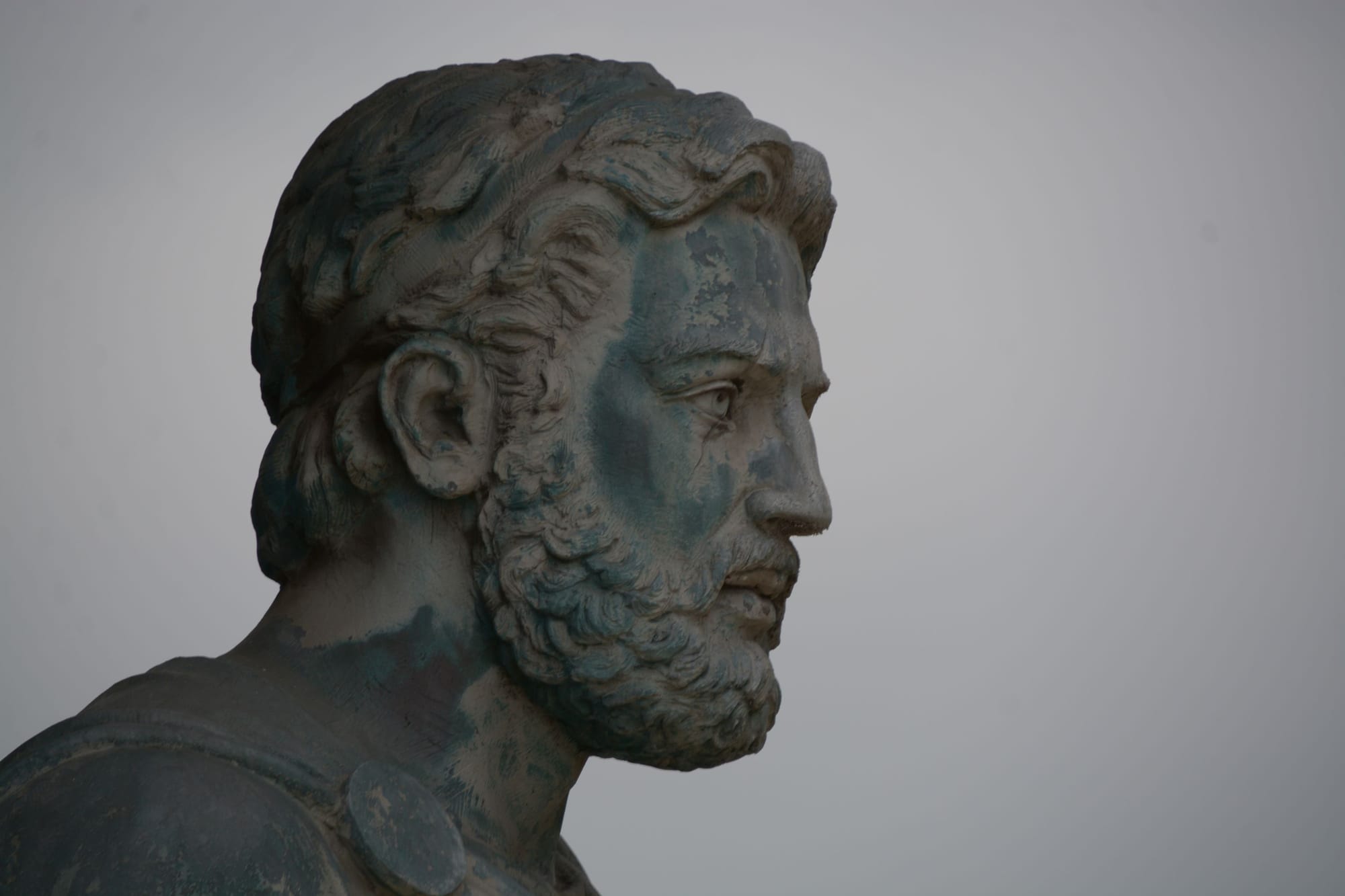
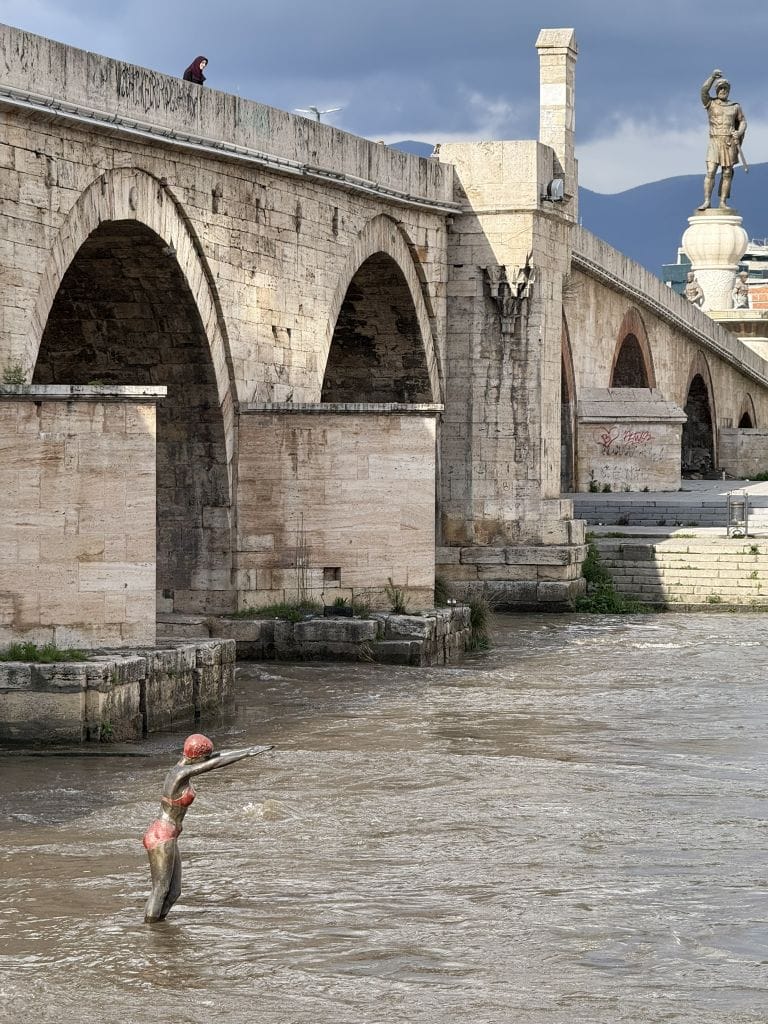
Perched above the old bazaar in the northern district stands Skopje’s historic fortress — a true relic of the city's past. Yet, despite all the funds poured into building colossal modern monuments just across the river, this genuine piece of history is crumbling. Its walls are weathered, its grounds neglected.
For us it is a striking metaphor for misplaced priorities: celebrating imagined grandeur while letting authentic heritage slowly decay.

Lakeside Life and Street Realities
Then we reached Ohrid, a charming lakeside town.

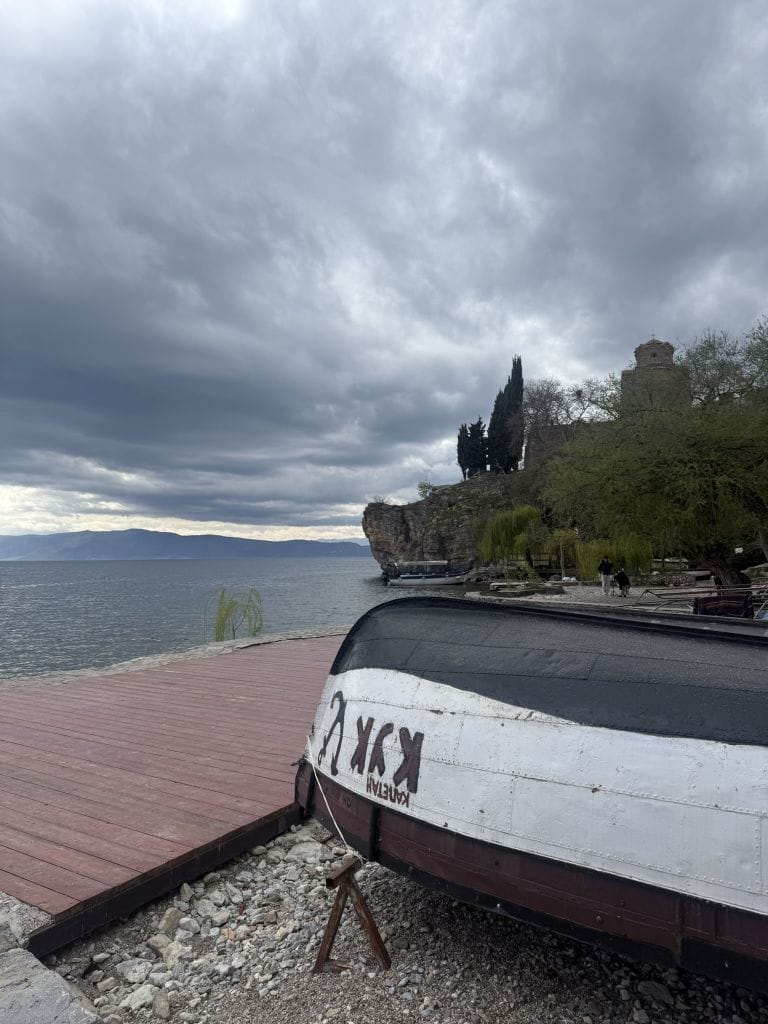
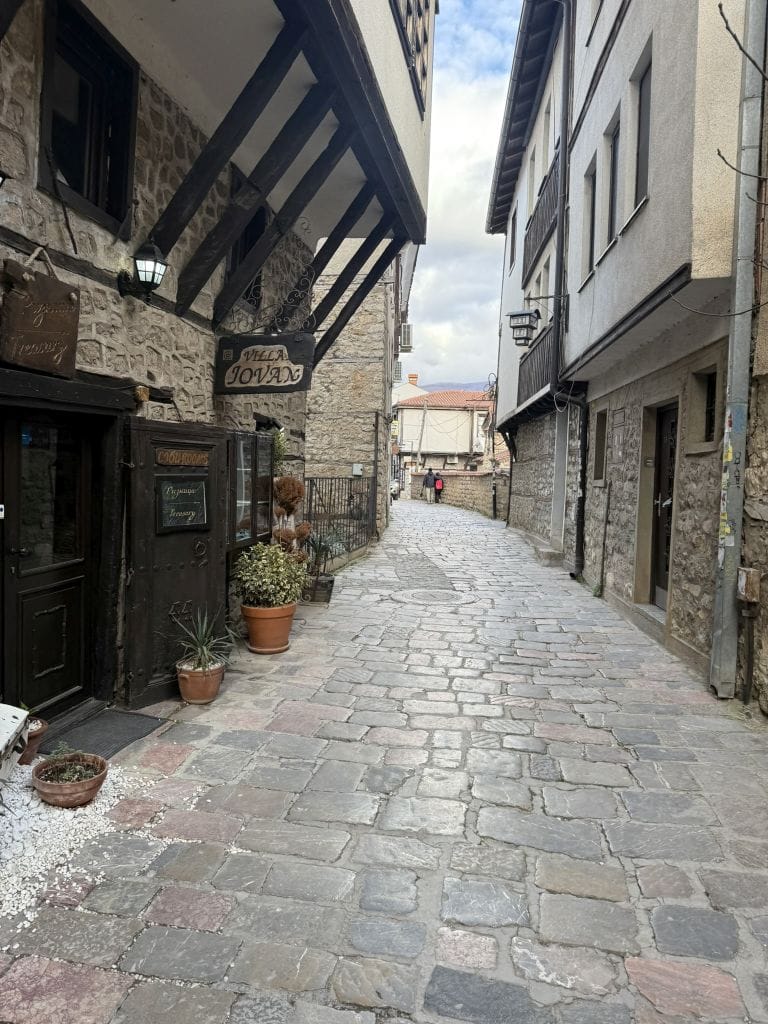
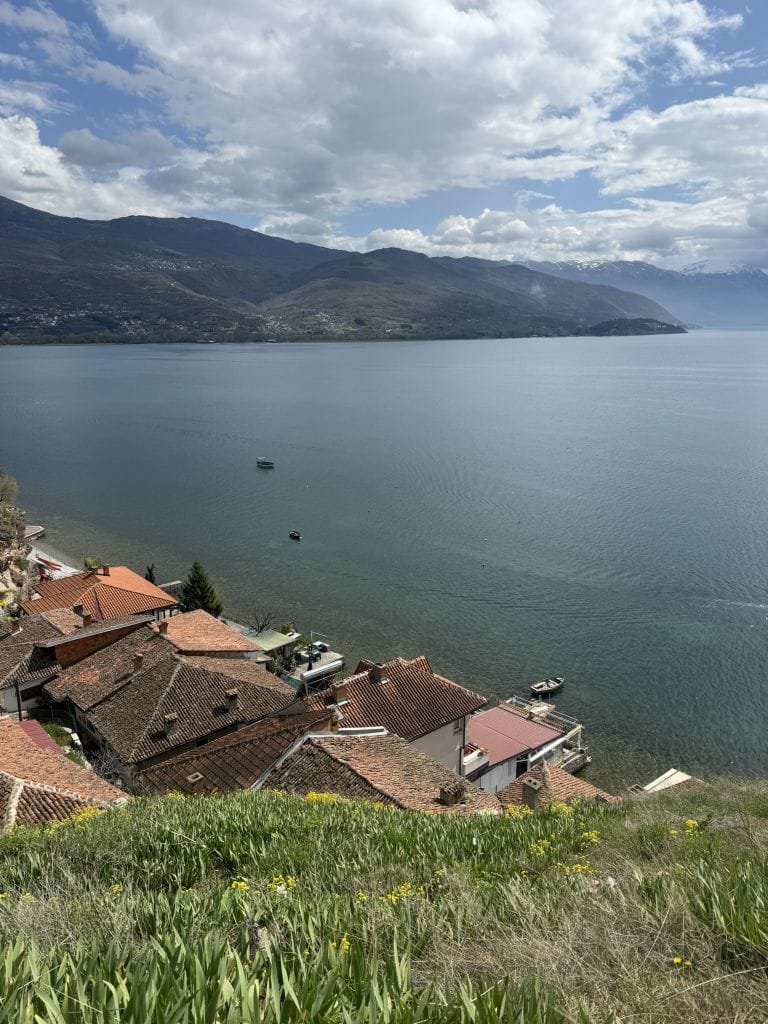
We had laundry to do — because not every moment is Instagram-worthy. Walking through town, bags of dirty clothes on our shoulders, we passed children begging on one corner and women in high heels and fur coats on the next.
This land is full of these contrasts. Macedonia is caught between a broken Lada and a Super Car, begging and Gabbana, beauty and neglect. Seeing those contrasts tells you more about a country than guidebooks ever could. And that’s why we travel. For perspective, not for perfection. For the real, not for the polished view.
And in the process, these contrasts also reset your perspective about your own country. It's easy to complain about regulations or imperfections at home, but traveling through the world reminds us — not everything back home is bad. Some things just work. It's a refreshing shift in viewpoint that grounds us with gratitude.
Keep your eyes open — we're not judging. It becomes painfully evident that when you're struggling to get a meal on the table, trash separation and environmental stewardship falls to the eighth and ninth spot on the priority list. These contrasts are not a failure of the people, but a reflection of the broader social and economic complexities that shape daily life.
Explore. Dream. Discover.
